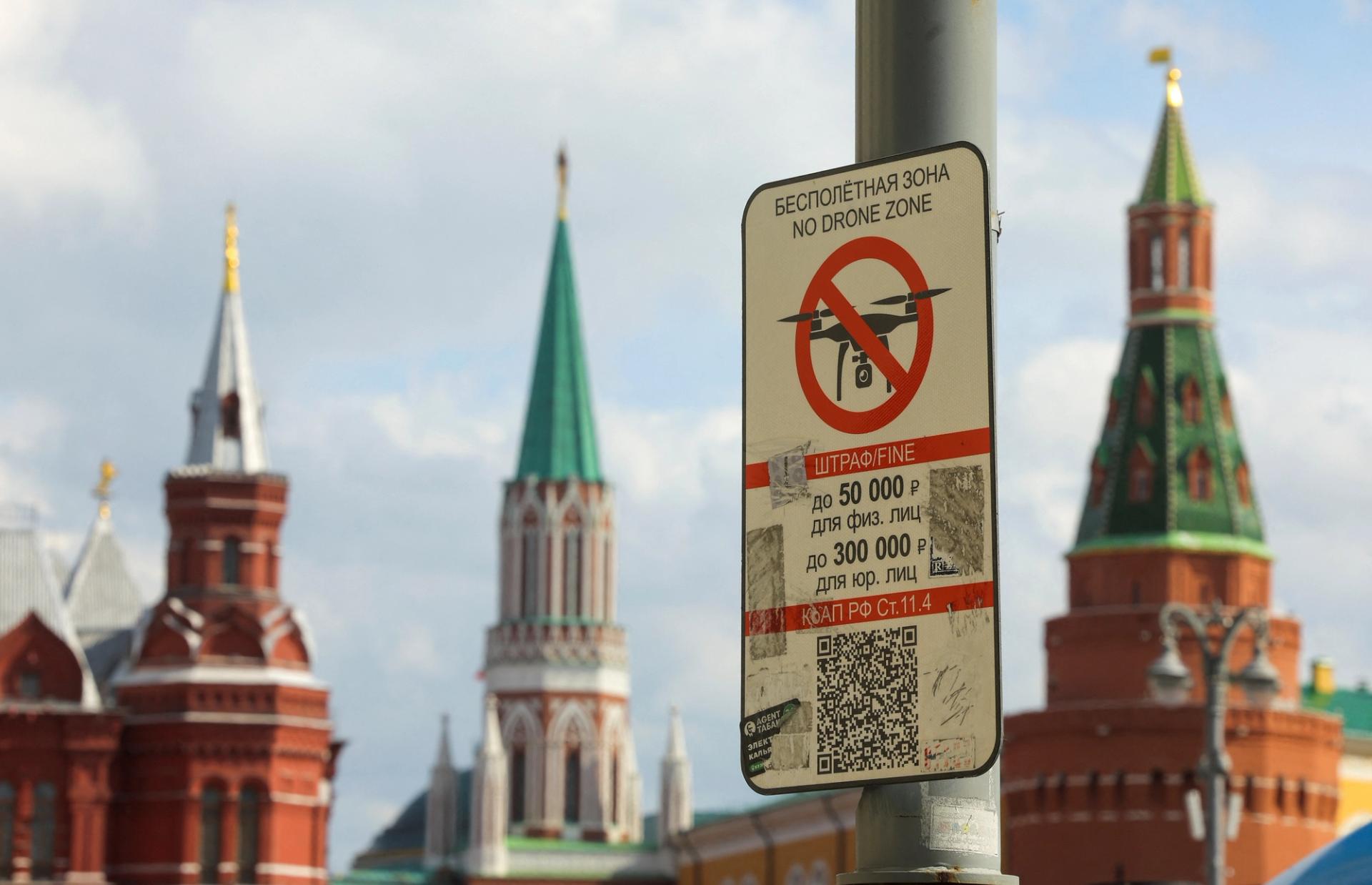The News
As questions mount over Russia’s claims that Kyiv and Washington were responsible for an alleged drone strike on the Kremlin, Semafor spoke to three experts to get their take on what might have happened.
Both Ukraine and the U.S. have flatly denied Moscow’s accusations that they were behind a so-called assassination attempt against Russian President Vladimir Putin.
There is currently no hard evidence — but several theories — as to who was behind the incident.
In this article:
Know More
James Nixey, director of the Russia and Eurasia Program at Chatham House
The incident was not an assassination attempt on Putin, said Nixey. “That‘s just what the Kremlin is saying.” He thinks there are two likely possibilities for what happened on Wednesday: That Kyiv fired a warning shot at Moscow to prove its capability, or Moscow carried out a false flag attack against itself.
“If it’s a warning shot by Kyiv then it’s yet another shocking security lapse by the Russian state,” Nixey said. “If it’s a false flag operation by Moscow, then it reeks of desperation.”
Russian security has been breached before, he added, pointing to an incident in 1987, when German teenager Mathias Rust landed his plane in the center of Moscow’s Red Square. More recently, Nixey said, the assassination of pro-Russia blogger Vladlen Tatarsky in St. Petersburg showed the country is full of security holes.
If it is a false flag, he said, it wouldn’t be the first time Russia has gone after their own infrastructure. “They’re still the most likely suspects in the Nordstream II pipeline destruction last year … and it’s a high-risk strategy likely to be exposed, considering how poor their tradecraft seems to be.”
Valentin Châtelet, Research Associate at the Atlantic Council’s Digital Forensic Research Lab
Châtelet said that although Ukrainian armed forces have shown that they can launch drones into Russian territory, the evidence presented in the video of the most recent attack is “not quite consistent with the drone types the Ukrainians operate.”
“Even if Ukrainian agents or dissent groups within Russia managed to fly a drone into Moscow, it would be technically very complex to land this kind of accurate strike,” he said.
Châtelet also said that articles on Russian state media emerged “within minutes” of the announcement of the drone strike, which raises questions on whether the attack was a false-flag operation on behalf of the Kremlin. He added, however, that a narrative portraying a close attack on Putin himself would be “humiliating” and cause the public to question the effectiveness of Russia’s security apparatus.
Alexander Downes, Associate Professor of Political Science and International Affairs, The George Washington University
Killing Putin would take “an enormous stroke of luck,” Downes said. “So the Russian argument that this was an ‘assassination’ attempt is not very convincing.”
While the professor argues that not enough information has emerged to determine who is responsible, Russia has an existing advantage in air power capabilities, so it would be hard to understand why Ukraine would escalate in an area where they would risk “potentially devastating retaliation.”
“It is at least as likely –– and perhaps more likely –– that the Russians staged the attack to justify launching even fiercer and more devastating air strikes on Ukrainian cities, to include targeting government buildings and even Zelenskyy himself,” Downes said, adding that “at this point, we just don’t know.”
Now What?
Experts who spoke with Semafor say that finding out what type of drones were used in the attack could help determine who the true perpetrator is. But Downes argues that it may not be so simple: “Whoever did it could have gotten their hands on a drone typically used by the other side,” he said.
More footage and digital analysis of the drones’ flight path and where they were launched from could also be illuminating –– but again, not dispositive.
“In the end, we may have to live with the fact that we may never know with certainty what really happened,” Downes said.
Room for Disagreement
Earlier on Thursday, the Institute for the Study of War posted a Twitter thread analyzing how the drone attack was likely staged by the Kremlin.
But in response, Bellingcat’s Director of Research & Training Aric Toler, in a separate thread, raised skepticism of ISW’s theory — saying that the strike actually makes the Russian military look “inept and weak.”
